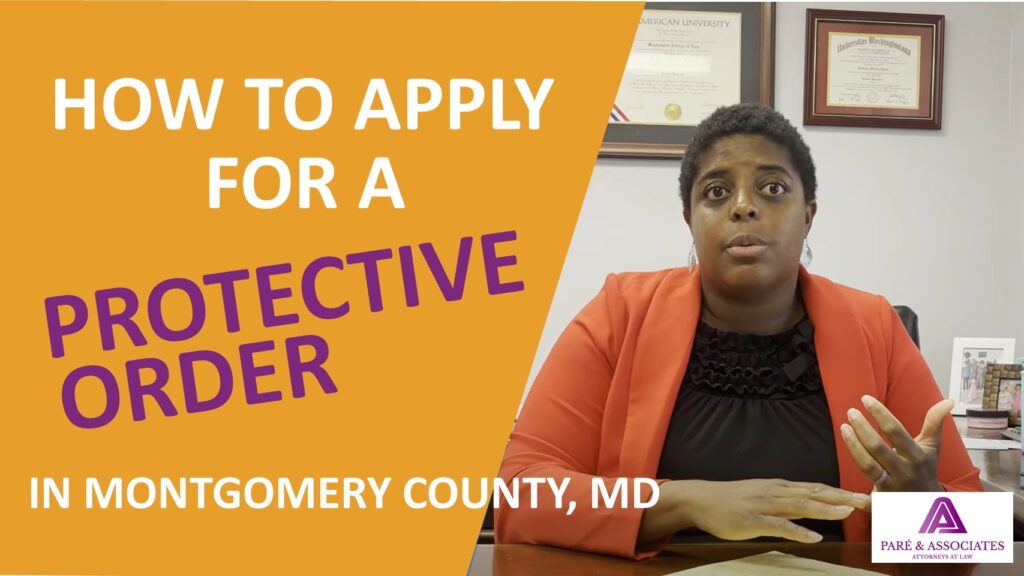Many people think that the biggest estate-planning mistake they could make is to die without a will. But most don’t realize that it can be an even bigger mistaken to die with *only* a will. For many people, creating both a will and a living trust will put them in a better position to: 1) save their family money; 2) make their loved ones’ lives easier; 3) protect themselves from elder abuse; and 4) protect the privacy of their financial affairs.
At Paré & Associates, we believe that every Maryland family should investigate whether a living trust is right for them. Every family—not just the very wealthy—deserves a smart estate plan that saves time and money during a difficult period of mourning and grief.
What is a will?
A will is a written document telling who gets what part of your stuff when you die, and when they get it. It also names a personal representative—the person who is responsible for carrying out your instructions. (While most people care what happens to their property when they die, only about half of adults have a will.)
It’s important to at least create a will. Otherwise, your property will be distributed based on your state’s default rules, which might not match your preferences. For example, if a married Marylander dies with no children but with surviving parents, their spouse doesn’t inherit everything unless they’ve been married for at least five years.
The instructions in the will are, in practice, instructions for the court. After your death, some of your property—like a house under joint ownership or a retirement account with a named beneficiary—might pass automatically to your heirs. But other property will need to be probated, which means your loved ones will need to go to court to access their stuff. Going to probate court isn’t fun. It involves paying both court costs and attorneys’ fees, and can take several months, if not a year, to complete. And it can wreak havoc on family harmony at a difficult time.
What is a living trust?
A living trust is also a written document stating who gets what, when they get it, and who in charge of making sure that happens. After creating the trust, the trust owners (or “grantors”) transfer their assets into the name of the trust, a new legal entity. Because the trust owns all the stuff, there is nothing left over in the individual owners’ names for the probate court to administered at their deaths. A trust-centered estate plan also includes a pour-over will, which states that any assets the grantor didn’t transfer to the trust “pour over” into the trust upon their death.
The main difference between a will and a living trust is that a trust does not have to go through the probate court process. When you create a trust-centered estate plan, your loved ones don’t need to wait months and pay other people money to access their property. Instead, the trustee—the person responsible for carrying out the trust instructions—can immediately begin distributing the trust’s assets.
Fear not: While the grantor is alive, they have full rights and access to their trust assets. A living trust makes your passing easier on loved ones. And once it’s set up, it doesn’t significantly complicate the owner’s life.
When are the other advantages of living trusts?
Avoiding probate is the main advantage to setting up a living trust. But there are two other benefits.
First, a trust helps avoid the need for court-ordered adult guardianship and conservatorship. Generally, if a family believes their aging loved one can no longer care for themselves, they must file a court petition requesting the appointment of a guardian and conservator. A judge makes a ruling after hearing testimony about the mental state of the person. This process can be messy, costly, and even humiliating. It can be avoided with a trust, which could include language defining when a person should be considered incapacitated and who should step in as a trustee at that time. These provisions can also protect the person against elder abuse.
Second, a trust provides privacy. Probate records are publicly available, but trusts are private. In a trust, only the heirs know what anyone inherited or even the size of the estate.
When does a trust become necessary?
Depending on your situation, a trust can be a cost-saving plan, an unnecessary expense, or an absolute necessity. For many people, trusts allow them to avoid probate, preserve family harmony, and ensure their privacy. But if you have no probate assets or a small estate, you might not need a trust. Below are a few examples of when setting up a trust is not only beneficial, but arguably required:
A living trust is crucial if you have minor children. If don’t have a trust and you tragically die while your children are still young, their inheritance will generally be given to them as a lump sum upon their eighteenth birthday. Until then, a court-supervised conservator oversees the money. This is not a great situation. Many, if not most, eighteen-year-olds cannot be trusted with their entire inheritance. Also, the court’s oversight process over the conservator’s actions can be complex and time-consuming. With a trust, you can set up rules as to when and how much money your children receive, and who will oversee those distributions.
A trust is also necessary for people whose loved ones have special needs. Individuals with specials needs might not have the capacity to handle the management of their money. And receiving a lump sum of property might disqualify them for federal benefit programs like Medicaid. A living trust allows you to leave money to a disabled beneficiary without affecting their eligibility for government assistance.
Lastly, a living trust can be very beneficial for blended families. In many families, one or both partners might have been previously married with children from those prior marriages. With a trust, the couple’s assets might end up in the hands of the children of whichever spouse lives the longest while the other partner’s children are unintentionally disinherited. A living trust can contain flexible provisions to meet both partners’ wishes.
For more than 30 years, we have been helping clients in Germantown, Clarksburg, and throughout Montgomery County with estate planning. Contact us for a free, no-obligation consultation to find out whether a living trust makes sense for you and your family.





